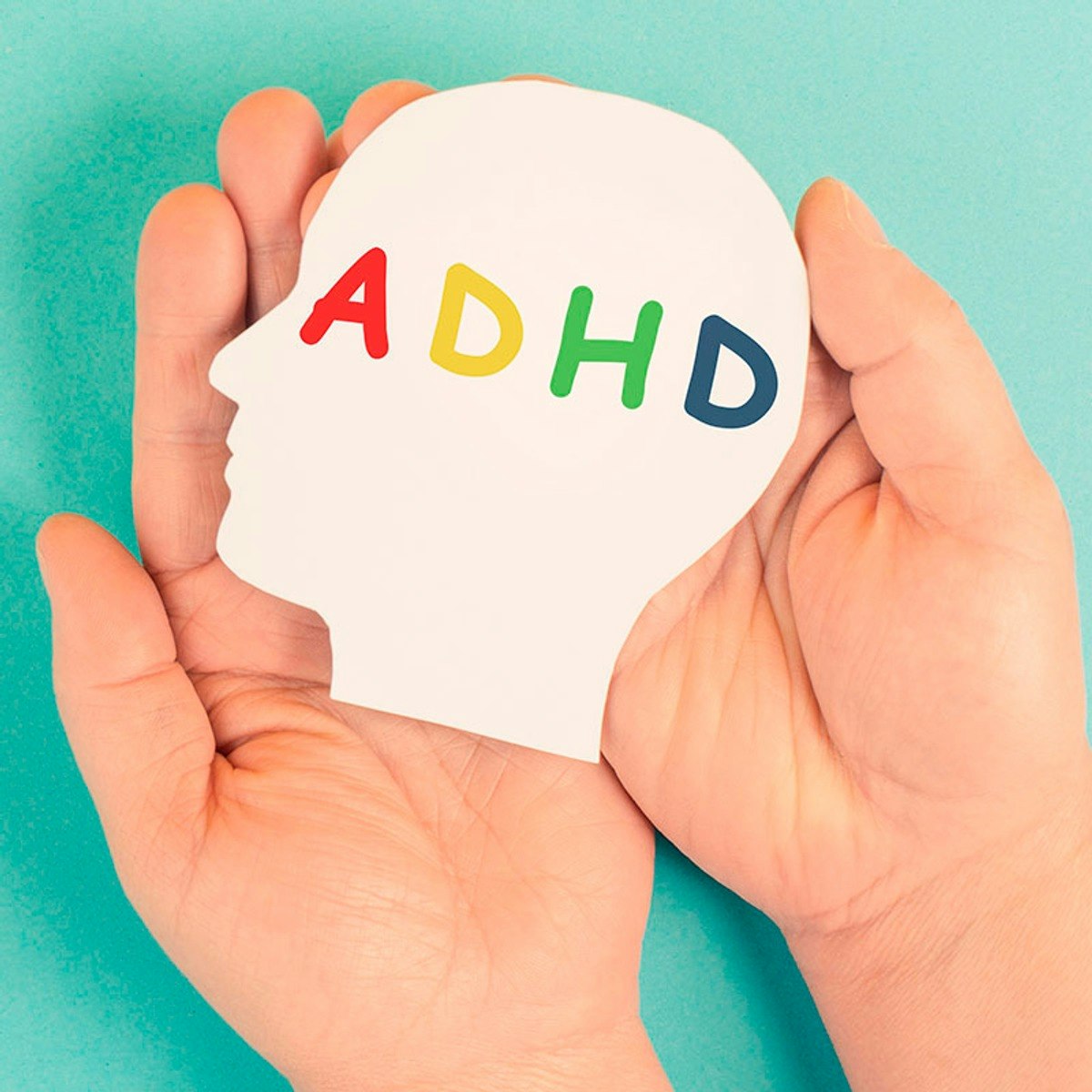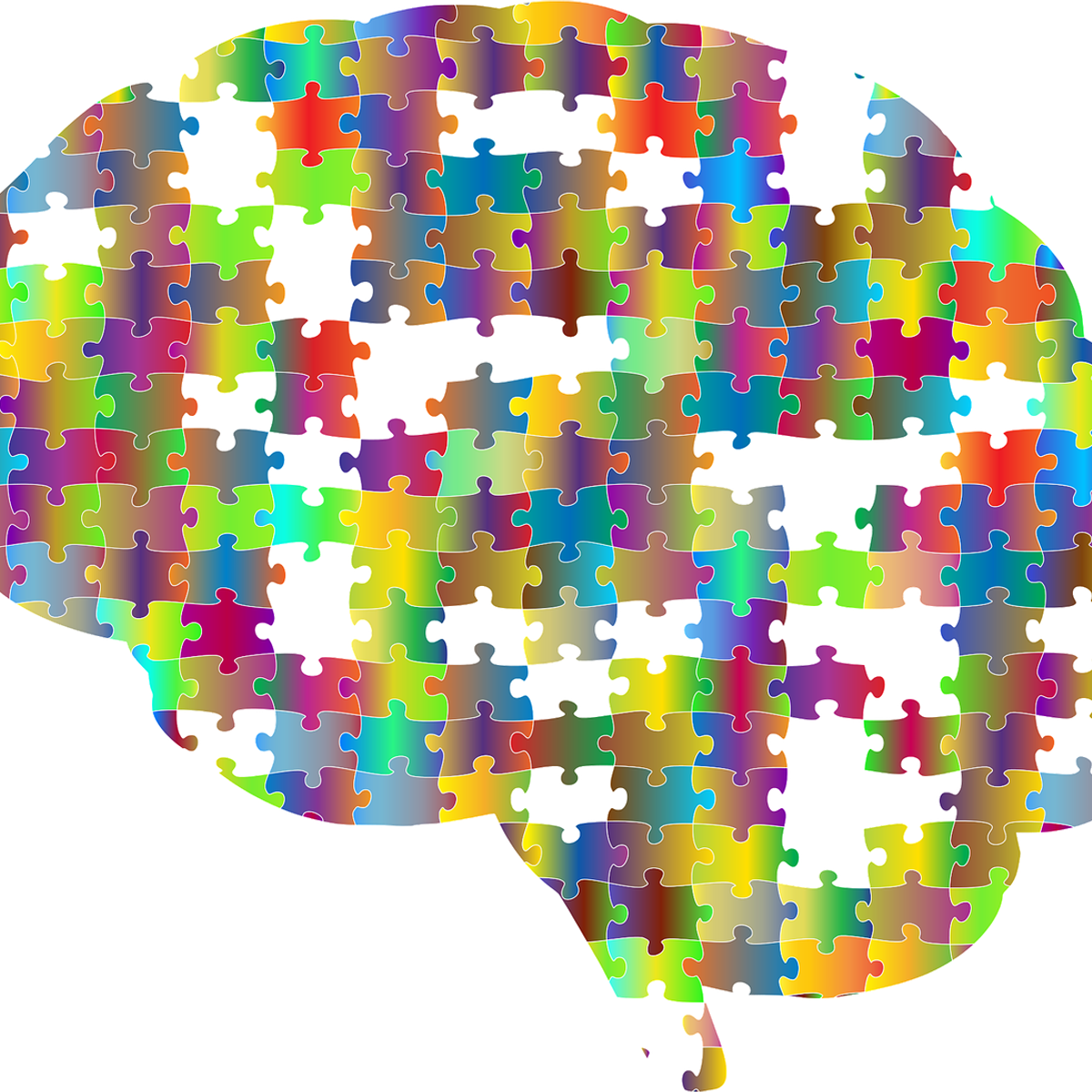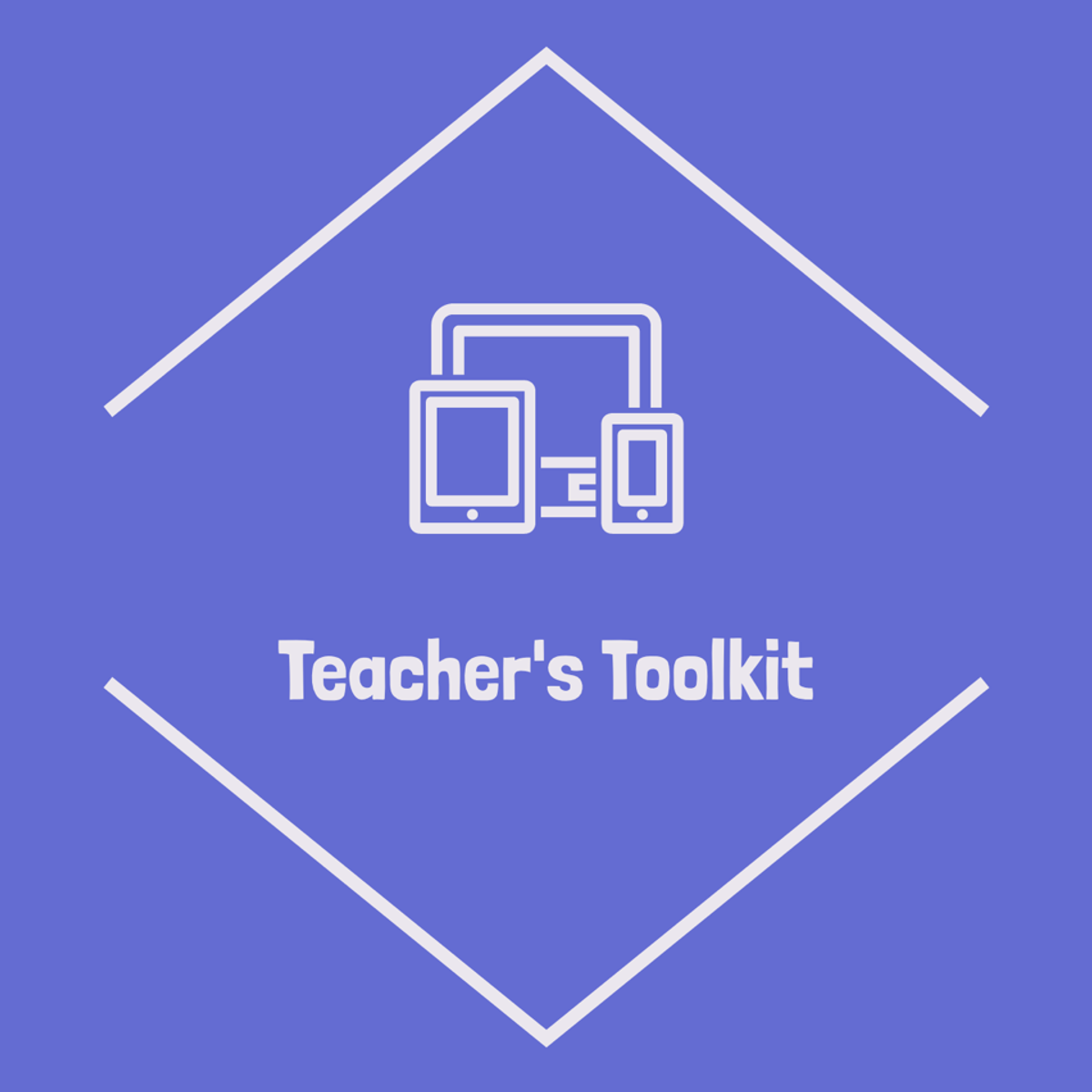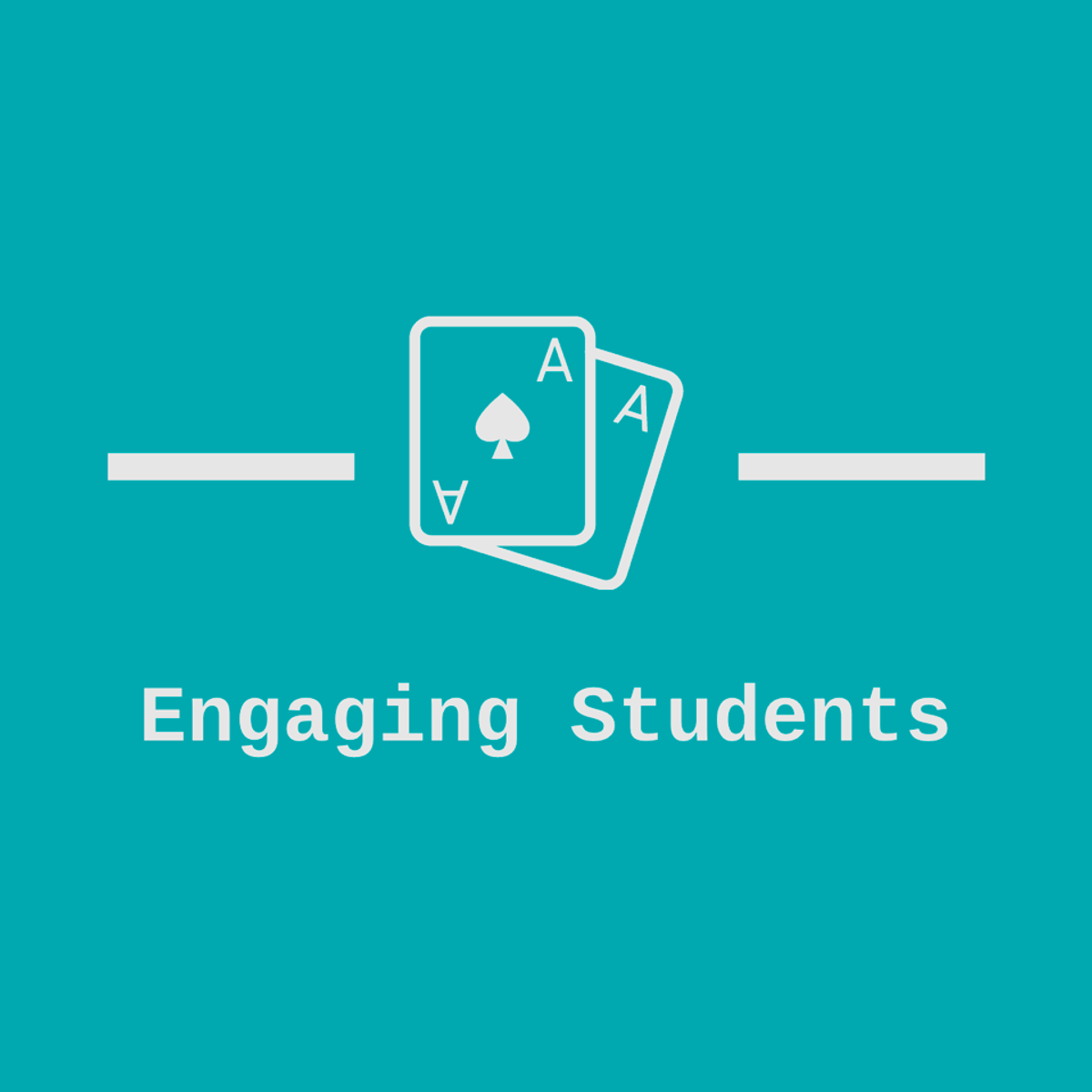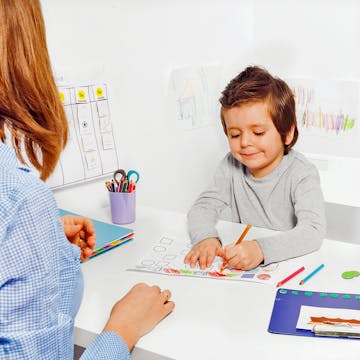Educational Psychologist
Embarking on a Career as an Educational Psychologist
Educational Psychology is a fascinating and impactful field that sits at the crossroads of psychology and education. It involves the scientific study of human learning and how educational settings and interventions can be optimized to support this process. Educational psychologists apply psychological principles and research methods to improve educational outcomes and address learning and developmental challenges in individuals across the lifespan, though a significant focus is often on children and adolescents.
The work of an educational psychologist can be incredibly engaging. Imagine delving into the intricate ways people learn, identifying barriers to education, and designing strategies to help individuals achieve their full potential. You might find yourself collaborating with educators, parents, and other professionals to create supportive learning environments, or conducting research that shapes educational policies and practices. The opportunity to make a tangible difference in people's lives by fostering their educational and personal growth is a powerful motivator for many in this profession.
What is Educational Psychology All About?
To truly understand the world of an educational psychologist, it's helpful to explore its core components. This field is not just about an interest in education or a curiosity about psychology; it's about the dynamic interplay between the two.
Core Principles: The Foundation of Understanding
Educational psychology is built upon several core principles that guide its practice and research. At its heart, the field seeks to understand how cognitive processes, such as memory, attention, and problem-solving, influence learning. It also examines the role of motivation, social and emotional factors, and individual differences in educational achievement. A key principle is the application of scientific research to inform evidence-based practices in educational settings. This means that interventions and teaching strategies are ideally grounded in empirical data, ensuring they are as effective as possible.
Another fundamental aspect is the focus on development across the lifespan. Educational psychologists recognize that learning is a continuous process and that the needs of learners change as they grow and develop. This developmental perspective is crucial for designing age-appropriate and effective educational programs. The field also emphasizes the importance of context, acknowledging that learning is influenced by various environmental factors, including family, school, and culture.
Key Theories: Lenses for Viewing Learning
Several influential theories shape the way educational psychologists understand and approach learning. Theories of cognitive development, such as Jean Piaget's stages of cognitive development, provide frameworks for understanding how children's thinking abilities evolve over time. Behaviorist learning theories, like those proposed by B.F. Skinner, emphasize the role of reinforcement and consequences in shaping behavior and learning.
Social cognitive theory, championed by Albert Bandura, highlights the importance of observational learning, self-efficacy, and the reciprocal interactions between individuals, their behaviors, and their environments. Constructivist theories, on the other hand, posit that learners actively construct their own knowledge and understanding through their experiences and interactions with the world. These are just a few examples, and often, educational psychologists draw upon multiple theoretical perspectives to inform their work.
To understand these concepts more deeply, exploring foundational texts in learning theories can be beneficial. These resources delve into the nuances of how individuals acquire and process information.
These books offer comprehensive overviews of established and contemporary learning theories, providing a solid theoretical grounding for aspiring educational psychologists.
Further exploration into cognitive development and learning habits can provide a more granular understanding of the psychological underpinnings of education.
The Intersection: Where Psychology Meets Education Systems
Educational psychology operates at the vital intersection of psychological science and the practical realities of education systems. Professionals in this field bridge the gap between research findings on how people learn and the development and implementation of effective teaching strategies, curriculum design, and educational policies. They work to translate complex psychological theories into actionable insights that educators can use to enhance student learning and well-being.
This intersection also involves understanding the organizational structures of schools and other educational institutions. Educational psychologists often collaborate with teachers, administrators, policymakers, and families to create systemic changes that support positive educational outcomes for all learners. They might be involved in developing school-wide programs to address issues like bullying, promoting mental health, or supporting students with diverse learning needs. The ultimate goal is to foster learning environments that are not only effective but also equitable and inclusive.
For those interested in the broader concepts underpinning these interactions, an introduction to educational theory can be very insightful.
What Does an Educational Psychologist Actually Do?
The day-to-day work of an educational psychologist is diverse and multifaceted, often involving a combination of assessment, consultation, intervention, and research. Their specific responsibilities can vary depending on their work setting, specialization, and the populations they serve.
Assessing Learning and Behavior
A significant part of an educational psychologist's role involves assessing children and young people to understand their learning and emotional needs. This can include identifying learning disabilities, developmental delays, behavioral issues, and social-emotional difficulties that may be impacting a student's ability to succeed in an educational setting.
Assessment methods are varied and can include standardized tests, observations in the classroom or other settings, interviews with the student, parents, and teachers, and questionnaires. The goal of these assessments is not just to identify a problem, but to gain a comprehensive understanding of the individual's strengths and challenges, which then informs the development of appropriate support strategies. For instance, an assessment might reveal that a student's difficulties with reading are linked to dyslexia, or that a student's disruptive behavior in class stems from underlying anxiety.
Understanding specific learning disabilities is crucial. Online courses can offer foundational knowledge in areas like ADHD and dyslexia, which are common focuses in educational psychology.
These books provide in-depth information on diagnosing and understanding learning disorders, which is a core competency for educational psychologists.
Delving into topics like learning disabilities and ADHD can provide a broader context for the assessment challenges faced by educational psychologists.
Partnering with Educators and Parents
Collaboration is a cornerstone of effective educational psychology practice. Educational psychologists work closely with teachers, school administrators, parents, and other professionals (such as speech therapists, occupational therapists, and social workers) to develop and implement strategies that support a student's learning and development. This collaborative approach ensures that everyone involved with a child's education is working together towards common goals.
For educators, this might involve providing guidance on differentiating instruction to meet diverse learning needs, implementing behavior management techniques, or creating a more inclusive classroom environment. With parents, educational psychologists might offer support and strategies for helping their child at home, understanding their child's learning profile, or navigating the special education system. Effective communication and interpersonal skills are therefore essential for building strong working relationships with all stakeholders.
Courses focusing on communication and collaborative skills, particularly in educational settings, can be highly beneficial for aspiring educational psychologists.
Creating and Implementing Intervention Programs
Based on assessments and in collaboration with others, educational psychologists design and sometimes directly implement intervention programs. These programs are tailored to address specific learning, behavioral, or social-emotional needs. Interventions can take many forms, from individual or small group counseling for students struggling with anxiety or social skills, to academic support programs for students with learning difficulties, to school-wide initiatives aimed at promoting positive behavior or preventing bullying.
The design of these programs is typically evidence-based, meaning they draw on research that has shown particular approaches to be effective. Educational psychologists also play a role in monitoring the progress of students receiving interventions and making adjustments as needed to ensure the best possible outcomes. This iterative process of assessment, intervention, and monitoring is key to helping students overcome challenges and reach their potential.
Understanding how to design and evaluate educational programs is a vital skill. Courses that touch upon assessment and intervention strategies are valuable.
Driving Educational Improvements Through Research
Many educational psychologists are actively involved in research aimed at understanding and improving educational outcomes. This research can cover a wide range of topics, including the effectiveness of different teaching methods, the development of new assessment tools, factors influencing student motivation, and the impact of educational policies on student achievement.
Research in educational psychology often involves collecting and analyzing data from students, teachers, and schools. The findings from this research can contribute to the broader knowledge base in the field and inform the development of evidence-based practices. Some educational psychologists work primarily in research settings, such as universities or research institutions, while others integrate research into their applied work in schools or other educational contexts. Regardless of the setting, a research-minded approach and analytical skills are valuable assets.
For those interested in the research aspect, courses that introduce research methodologies and cognitive psychology provide a strong foundation.
A comprehensive understanding of research is supported by texts that delve into the methodologies and cognitive underpinnings of learning.
The Journey to Becoming an Educational Psychologist
The path to becoming an educational psychologist is a dedicated one, typically requiring advanced education and licensure. Understanding these requirements is the first step for anyone considering this rewarding career.
Laying the Groundwork: Undergraduate Studies
A bachelor's degree is the foundational step towards a career in educational psychology. While a specific undergraduate major in "educational psychology" is less common, degrees in general psychology or education provide excellent preparation. Coursework in areas like developmental psychology, cognitive psychology, learning theories, statistics, and research methods is particularly relevant.
Beyond coursework, gaining practical experience working with children and young people is highly recommended and often a prerequisite for graduate programs. This experience can be gained through volunteer work, internships, or paid positions in schools, childcare centers, youth programs, or settings serving individuals with special needs. Such experiences not only strengthen a graduate school application but also provide valuable insights into the realities of working in educational settings. Good grades, especially in psychology and science courses, are also important.
Introductory psychology courses available online can help solidify foundational knowledge and explore if this field is a good fit.
Foundational books in general educational psychology are excellent starting points for undergraduate students.
Exploring topics like Child Psychology and Human Development can further enrich an undergraduate's understanding of the field.
Advancing Your Knowledge: Graduate Programs
To practice as an educational psychologist, at least a master's degree is typically required. However, in many jurisdictions, particularly to use the title "psychologist" or to practice independently, a doctoral degree (Ph.D. or Psy.D.) is necessary. Master's programs in educational psychology usually take two to three years to complete and often include coursework in assessment, intervention, research methods, and various psychological theories relevant to education. Some master's programs may prepare graduates for roles such as educational diagnosticians, research assistants, or specialists in instructional design.
Doctoral programs are more intensive, typically requiring an additional three to five years of study, including a comprehensive dissertation based on original research and a supervised internship. A Ph.D. in Educational Psychology often has a stronger emphasis on research, while a Psy.D. (Doctor of Psychology) may focus more on applied practice. Admission to graduate programs, especially doctoral programs, is often competitive, requiring a strong academic record, relevant experience, and letters of recommendation.
Prospective graduate students can benefit from courses that delve into more specific areas of psychology relevant to educational settings.
Getting Licensed: The Path to Practice
Licensing and certification requirements for educational psychologists vary significantly by state and country. It is crucial to research the specific requirements for the jurisdiction in which you intend to work. Generally, to become a licensed psychologist, individuals need to have completed an accredited doctoral program, accumulated a certain number of supervised practice hours (often including a pre-doctoral internship and post-doctoral experience), and pass a national licensing examination (such as the Examination for Professional Practice in Psychology - EPPP) and potentially a state-specific jurisprudence exam.
Some states may have specific licenses or certifications for school psychologists, which might have different educational and experience requirements than a general psychology license. Professional organizations, such as the American Psychological Association (APA) or the National Association of School Psychologists (NASP) in the United States, or the British Psychological Society (BPS) in the UK, provide valuable information on accreditation, licensure, and ethical standards. Maintaining licensure typically requires ongoing continuing education.
Leveraging Online Learning for Skill Development
The digital age has opened up numerous avenues for learning and skill development, and aspiring and practicing educational psychologists can certainly benefit from online resources. Online courses can be a flexible and accessible way to build foundational knowledge, supplement formal education, or engage in continuing professional development.
Finding Reputable Online Courses
When seeking online courses in educational psychology or related fields, it's important to look for programs offered by accredited institutions or reputable organizations. Many universities now offer online master's degrees or certificate programs in educational psychology or specializations like learning design and technology. These programs often cover core topics such as learning theories, developmental psychology, assessment methods, and research design.
OpenCourser is a valuable resource for finding and comparing such programs, allowing learners to browse through a wide array of courses in education and psychology. Look for courses that align with your career goals and learning needs. For those new to the field, introductory courses can provide a broad overview, while more specialized courses can help develop expertise in specific areas. Reading reviews and checking instructor credentials can also help in selecting high-quality online learning experiences.
Online courses provide accessible pathways to understanding core concepts in educational psychology and related disciplines.
Books focusing on instructional design and learning theories can complement online coursework, providing deeper theoretical understanding.
Exploring topics like Learning Theories and Metacognition can enhance understanding of how to effectively use online learning resources.
Utilizing Digital Tools for Assessment Training
While hands-on, supervised experience is irreplaceable for learning psychological assessment, digital tools can supplement this training. Some online platforms and software offer simulations or training modules related to psychological assessment. These can help learners become familiar with different types of assessment tools, practice administration procedures (in a simulated environment), and learn about scoring and interpretation. For example, Q-Interactive is an iPad-based system used by educational psychologists for testing.
It's crucial to remember that administering and interpreting psychological tests requires extensive training and adherence to ethical guidelines. Digital tools should be seen as supplementary resources within a comprehensive training program supervised by qualified professionals, rather than a standalone method for learning assessment skills. Some professional organizations may also offer webinars or online workshops on specific assessment techniques or new assessment tools.
Courses focusing on student assessment and the use of technology in education can provide insights into digital assessment tools.
Understanding topics such as Behavioral Tests can provide context for how digital tools might be applied in assessment.
Blending Online Learning with Practical Experience
For a career as hands-on as educational psychology, online learning is most effective when integrated with practical, real-world experience. Fieldwork, internships, and supervised practice are critical components of becoming a competent educational psychologist and are typically required for licensure. Online coursework can provide the theoretical knowledge and foundational skills, but applying that knowledge in real-life situations under the guidance of experienced professionals is essential.
Consider how online courses can complement your practical experiences. For example, if you are volunteering in a school setting, an online course on child development or learning disabilities could provide a deeper theoretical understanding of the children you are working with. If you are a working professional, online courses can offer flexible continuing education opportunities to stay current with new research and practices in the field. The key is to create a blended learning approach that combines the convenience and accessibility of online resources with the invaluable learning that comes from direct experience.
Many students find it helpful to supplement their practical experiences with online courses that offer theoretical frameworks and diverse perspectives on child development and learning.
Navigating Your Career Path and Finding Your Niche
The field of educational psychology offers diverse career paths and opportunities for specialization. As you gain experience and develop your interests, you can tailor your career to focus on specific populations, settings, or areas of practice.
Starting Your Journey: Entry-Level Positions
With a master's degree in educational psychology, or while pursuing a doctorate, individuals may find entry-level positions such as a school psychologist (in some jurisdictions, a master's is the entry-level requirement for schools), research assistant, program evaluator, or instructional coordinator. In a school setting, an early-career professional might be involved in conducting assessments, providing counseling, consulting with teachers and parents, and contributing to the development of Individualized Education Programs (IEPs).
As a research assistant, one might work in a university or research institution, assisting with data collection, analysis, and the preparation of research reports. These roles provide invaluable experience and mentorship, laying the groundwork for more advanced positions. It's a time for learning, honing skills, and beginning to identify areas of particular interest that might lead to future specialization.
For those starting, courses that provide an overview of child psychology and the educational system can be particularly useful.
Exploring related career paths like School Psychologist or Educational Researcher can offer insights into typical entry-level responsibilities.
Advancing Your Career: Mid-Level Opportunities
With experience and typically a doctoral degree and licensure, educational psychologists can advance to more senior roles and explore diverse career paths. Many continue to work in school systems as senior or lead psychologists, taking on more complex cases, supervising other psychologists, or developing and overseeing school-wide programs. Others may move into clinical practice, establishing their own private practices or working in clinics or hospitals, providing assessment and therapy services to children, adolescents, and families.
Another avenue is policy advising, where educational psychologists use their expertise to inform educational policies at the local, state, or national level. They might work for government agencies, non-profit organizations, or research think tanks, conducting research and making recommendations to improve educational systems. Some experienced educational psychologists also transition into academia, becoming professors who teach and mentor future generations of psychologists and conduct research.
Mid-career professionals often benefit from courses that delve into specialized topics or advanced research methodologies.
A career as a Counseling Psychologist can be a related path for those interested in more clinical roles.
Finding Your Focus: Areas of Specialization
Educational psychology is a broad field, offering numerous opportunities for specialization. Some common areas of specialization include working with specific populations, such as students with autism spectrum disorders, those with learning disabilities like dyslexia, or gifted and talented learners. Others might specialize in early childhood intervention, focusing on the developmental needs of very young children.
Another area of specialization is instructional design and educational technology, where psychologists apply learning principles to the development of effective educational materials, online courses, and learning technologies. Some educational psychologists specialize in research and program evaluation, focusing on assessing the effectiveness of educational programs and interventions. Further specializations can include areas like school-based mental health, multicultural counseling in educational settings, or neuropsychology. Choosing a specialization often depends on individual interests, skills, and career goals, and it can evolve over the course of one's career.
Courses focusing on specific areas like autism, ADHD, or gifted education can help individuals explore potential specializations.
Books on specific conditions like dyslexia or on broader topics like self-determination theory can provide deep dives into specialized knowledge areas.
Exploring topics such as Special Education can provide a comprehensive view of various specialization options.
Upholding Professional Standards: Ethical Considerations
Ethical practice is paramount in educational psychology. Professionals in this field have a responsibility to protect the well-being and rights of the individuals, families, and communities they serve. Adherence to ethical codes and guidelines is essential for maintaining public trust and ensuring the integrity of the profession.
Protecting Privacy: Confidentiality in Assessments
Confidentiality is a cornerstone of ethical psychological practice. Educational psychologists are entrusted with sensitive personal information about students and their families, including assessment results, diagnostic information, and personal histories. Maintaining the confidentiality of this information is crucial for building trust and ensuring that individuals feel safe sharing openly.
This means that information shared with an educational psychologist should not be disclosed to others without the informed consent of the individual (or their legal guardian, in the case of minors), except in specific situations where there is a legal or ethical duty to report, such as when there is a risk of harm to the individual or others. Educational psychologists must be knowledgeable about privacy laws and ethical guidelines related to confidentiality and take appropriate measures to safeguard student records and assessment data.
Ensuring Fairness: Mitigating Bias in Interventions
Educational psychologists strive to provide fair and equitable services to all individuals, regardless of their background, culture, or personal characteristics. This includes being aware of and actively working to mitigate potential biases in their assessment practices and intervention strategies. Bias can manifest in various ways, such as using assessment tools that are not culturally appropriate or making recommendations based on stereotypes rather than individual needs.
To mitigate bias, educational psychologists engage in ongoing self-reflection, seek culturally competent training, and use assessment methods and intervention approaches that are validated for diverse populations. They also advocate for equitable access to educational resources and opportunities for all students. Recognizing and addressing systemic biases within educational systems is also an important aspect of ethical practice.
Courses focusing on diversity, inclusion, and ethical practice are valuable for developing an understanding of bias mitigation.
Responsible Research: Ethical Use of Data
When educational psychologists conduct research, they have an ethical responsibility to protect the rights and welfare of research participants. This includes obtaining informed consent from participants (or their guardians), ensuring that participation is voluntary, protecting participants from harm, and maintaining the confidentiality of their data.
Ethical research practices also involve accurately reporting research findings and avoiding plagiarism or fabrication of data. Educational psychologists who use research data in their practice, such as when selecting evidence-based interventions, must ensure that they are using data responsibly and interpreting it correctly. Adherence to ethical guidelines for research is overseen by Institutional Review Boards (IRBs) at universities and other research institutions.
Tackling the Hurdles: Challenges in Modern Educational Psychology
The field of educational psychology, while offering immense rewards, also faces a number of contemporary challenges. Navigating these complexities requires adaptability, ongoing learning, and a commitment to advocating for the needs of learners.
Striving for Equity: Addressing Gaps in Education
A significant challenge in modern educational psychology is addressing persistent equity gaps in education. Students from disadvantaged socioeconomic backgrounds, minority groups, and those with disabilities often face systemic barriers that hinder their educational attainment. Educational psychologists play a crucial role in identifying these disparities and developing interventions to promote more equitable outcomes. However, tackling these deep-rooted issues requires systemic change and collaboration across multiple sectors.
This involves advocating for policies that support equitable funding for schools, culturally responsive teaching practices, and access to high-quality early childhood education. It also means working to dismantle biases within educational systems and ensuring that all students have the resources and support they need to succeed. The challenge lies in translating research and understanding into effective, scalable solutions that can close these persistent gaps. According to the Brookings Institution, disparities in educational opportunities based on race and socioeconomic status remain a significant concern.
Riding the Wave: Adapting to Technological Disruptions
The rapid advancement of technology, including the rise of artificial intelligence (AI) in learning, presents both opportunities and challenges for educational psychology. Digital tools can offer personalized learning experiences, provide rich data on student progress, and enhance access to educational resources. However, technology also raises concerns about data privacy, the digital divide (unequal access to technology), and the potential for technology to exacerbate existing inequalities if not implemented thoughtfully.
Educational psychologists need to stay abreast of these technological developments and critically evaluate their potential benefits and drawbacks. This includes understanding how to ethically and effectively integrate technology into assessment and intervention practices, as well as researching the impact of technology on student learning, engagement, and well-being. The challenge is to harness the power of technology to enhance education while mitigating potential risks. An article from Psychology Today discusses some of the nuanced impacts of technology in the classroom.
Understanding the intersection of technology and education is increasingly important. Online courses can provide insights into these evolving areas.
Staying Well: Burnout and Workload Management
Like many helping professions, educational psychology can be demanding, and professionals in the field are susceptible to burnout and workload challenges. High caseloads, increasing administrative demands, and the emotional intensity of working with individuals facing significant challenges can take a toll. Shortages of qualified educational psychologists in some areas can exacerbate these pressures, leading to increased workloads for existing professionals.
Addressing burnout requires both individual and systemic strategies. Self-care practices, setting healthy boundaries, and seeking peer support are important for individual well-being. At a systemic level, organizations need to promote manageable workloads, provide adequate resources and support, and foster a culture that values work-life balance. Advocacy for increased funding for educational psychology services and efforts to recruit and retain more professionals in the field are also crucial for addressing these challenges. The American Psychological Association has highlighted the significant stress and burnout rates among education professionals.
Making a Difference Worldwide: The Global Impact of Educational Psychologists
The principles and practices of educational psychology have relevance across diverse cultural and national contexts. As education becomes increasingly globalized, the expertise of educational psychologists is sought after worldwide to address a range of educational challenges and promote learning for all.
Learning Across Borders: Cross-Cultural Educational Research
Understanding how cultural factors influence learning and development is a growing area of focus in educational psychology. Cross-cultural research helps to identify universal principles of learning as well as culturally specific factors that can impact educational outcomes. This research is essential for developing culturally sensitive and effective educational interventions in diverse settings.
Educational psychologists involved in cross-cultural research may study topics such as the impact of different teaching styles across cultures, cultural variations in motivation and learning preferences, or the adaptation of assessment tools for use in different cultural contexts. This work contributes to a more nuanced and globally informed understanding of educational psychology. The increasing globalization of education also means more opportunities for educational psychologists to work in international schools or collaborate with colleagues from different countries.
Aligning with Global Goals: UNESCO’s Education 2030 Framework
International frameworks, such as UNESCO’s Education 2030 Agenda, emphasize the importance of inclusive and equitable quality education and lifelong learning opportunities for all. Educational psychologists can play a significant role in helping countries achieve these goals. Their expertise in areas such as early childhood development, inclusive education, teacher training, and assessment can inform the development and implementation of national education strategies aligned with global targets.
By contributing to evidence-based policymaking and program development, educational psychologists can help ensure that educational systems are designed to meet the needs of all learners, including those from marginalized or vulnerable populations. This global perspective highlights the far-reaching impact that educational psychology can have on improving lives and fostering sustainable development.
Meeting the Need: Global Demand for Expertise
There is a growing recognition globally of the importance of psychological well-being and effective learning support in education. This has led to an increasing demand for educational psychology expertise in many parts of the world. Educational psychologists are needed to help address issues such as learning difficulties, behavioral challenges, mental health concerns among students, and the need for more inclusive educational practices.
This global demand creates opportunities for educational psychologists to work in diverse settings and contribute to improving education systems internationally. However, it also highlights the need for culturally competent practitioners who can adapt their knowledge and skills to different contexts. The challenges and opportunities in global educational psychology underscore the dynamic and evolving nature of the field.
Peering into the Crystal Ball: Future Trends in Educational Psychology
The field of educational psychology is continually evolving, shaped by advancements in related disciplines, technological innovations, and changing societal needs. Staying aware of emerging trends is crucial for professionals who want to remain at the forefront of the field.
The Brain and Learning: Insights from Neuroscience
Advancements in neuroscience are providing increasingly detailed insights into how the brain learns and develops. This field, often referred to as educational neuroscience or neuroeducation, seeks to bridge the gap between brain science and educational practice. Research in this area explores topics such as the neural basis of reading, math, attention, and memory, as well as the impact of factors like stress and emotion on brain development and learning.
While the direct application of neuroscience findings to classroom practice is still an developing area, these insights have the potential to inform the design of more brain-friendly learning environments and interventions. Educational psychologists with an understanding of neuroscience may be involved in translating research findings into practical strategies for educators or conducting research at the intersection of brain science and education. According to an article on Frontiers in Psychology, neuroscience can offer a better understanding of student motivation and learning.
For those interested in the intersection of brain science and education, several online courses explore these cutting-edge topics.
Exploring topics related to Cognitive Science and Brain Function can provide a deeper understanding of this trend.
The Rise of Smart Learning: AI-Driven Personalized Systems
Artificial intelligence (AI) is poised to significantly impact education, with AI-driven personalized learning systems becoming increasingly sophisticated. These systems aim to tailor educational content and experiences to the individual needs, learning styles, and pace of each student. AI can be used to analyze student data, identify learning patterns, provide targeted feedback, and adapt instructional materials in real-time.
Educational psychologists will play a crucial role in the development, implementation, and evaluation of these AI-driven systems. Their expertise in learning theories, cognitive development, and assessment will be essential for ensuring that these technologies are pedagogically sound, ethically responsible, and effective in promoting student learning. The challenge will be to leverage the power of AI to create more equitable and engaging learning experiences while addressing concerns about bias, privacy, and the role of human interaction in education.
Courses that touch upon data analysis, technology in education, and adaptive learning can be relevant here.
Learning for a Changing Planet: Climate Change Education
As the impacts of climate change become increasingly apparent, there is a growing recognition of the need for effective climate change education. This involves not only teaching the science of climate change but also fostering the skills, attitudes, and behaviors needed to address this global challenge. Educational psychologists can contribute to this emerging area by applying their understanding of learning, motivation, and behavior change to the development of effective climate change education strategies.
This might involve research on how to best communicate complex scientific information about climate change, how to promote pro-environmental behaviors, or how to help students cope with climate-related anxiety. Educational psychologists can also work with educators to develop curricula and teaching approaches that effectively engage students with this critical issue and empower them to become agents of change.
Answering Your Questions: Career Insights
Embarking on any career path comes with questions. Here are some common inquiries about a career in educational psychology, along with information to help guide your decisions.
What Can I Earn? Salary Expectations
Salaries for educational psychologists can vary significantly based on factors such as geographic location, level of education (master's vs. doctorate), years of experience, work setting (e.g., schools, private practice, universities, government), and specific job responsibilities.
According to the U.S. Bureau of Labor Statistics (BLS), the median annual wage for psychologists, a broad category that includes educational psychologists, was $94,310 in May 2024. The BLS also reports median salaries for more specific categories: school psychologists earned a median of $84,940, while psychology professors earned a median of $82,140. In the UK, salaries for qualified educational psychologists in local authorities can range from around £42,422 to over £74,297 for senior roles, with potential to earn more with experience and additional responsibilities. Scottish local authorities offer similar, competitive salary bands. Those in private practice or consulting may have different earning potentials. Generally, individuals with a doctoral degree and more experience tend to command higher salaries.
What Skills Do I Need for the Long Haul?
Beyond formal qualifications, several critical skills contribute to career longevity and success as an educational psychologist. Excellent communication and interpersonal skills are paramount, as the role involves extensive interaction with diverse individuals, including children, parents, educators, and other professionals. Strong analytical and problem-solving abilities are needed for assessing complex situations, interpreting data, and developing effective interventions.
Other essential skills include empathy, patience, sensitivity, and cultural competence. Educational psychologists must also be adaptable, resilient, and possess strong organizational and report-writing skills. A commitment to lifelong learning is also crucial, as the field is constantly evolving with new research and best practices.
Can I Switch from Teaching to Educational Psychology?
Yes, transitioning from a teaching career to educational psychology is a common and often successful path. Teachers already possess valuable experience working with children and young people in educational settings, a deep understanding of classroom dynamics, and familiarity with the education system. This background can be a significant asset when pursuing graduate studies and a career in educational psychology.
The transition typically involves obtaining the necessary graduate degree (master's or doctorate) in educational psychology and meeting licensure requirements. Relevant teaching experience can strengthen an application to graduate programs. Former teachers often bring practical insights and a passion for education that enriches their work as educational psychologists.
For educators considering this transition, OpenCourser offers a variety of psychology courses that can help bridge the knowledge gap and prepare for graduate-level study.
Academia vs. Industry: Which Path is Right?
Educational psychologists can find fulfilling careers in both academic and industry settings, and the "right" path depends on individual interests and career goals. An academic career typically involves working at a college or university, conducting research, teaching courses, and mentoring students. This path is often well-suited for those passionate about research, contributing to the knowledge base of the field, and educating future psychologists.
Industry or applied roles are more diverse and can include working in K-12 schools, clinics, government agencies, non-profit organizations, or private companies that develop educational products or services. These roles often focus on direct service delivery, program development and evaluation, consultation, or policy work. Some educational psychologists may even combine aspects of both, for example, by maintaining a part-time private practice while also teaching at a university.
Will AI Make My Job Obsolete?
While artificial intelligence (AI) is increasingly being integrated into education and psychology, it is unlikely to make educational psychologists obsolete. Instead, AI is more likely to transform the role, providing new tools and capabilities while also creating new areas of focus. AI can assist with tasks like data analysis, personalized learning, and even some aspects of assessment.
However, the core human elements of educational psychology – such as empathy, complex clinical judgment, building therapeutic relationships, ethical decision-making, and understanding nuanced social-emotional dynamics – are not easily replicated by AI. Educational psychologists will likely be needed to oversee, interpret, and ethically guide the use of AI in educational settings, as well as to address the psychological impacts of these technologies on learners. The focus may shift towards leveraging AI as a tool to enhance practice rather than being replaced by it.
Can I Be My Own Boss? Entrepreneurial Ventures
Yes, there are entrepreneurial opportunities for educational psychologists, particularly for those with doctoral degrees, licensure, and significant experience. Many experienced educational psychologists establish private practices, offering assessment, consultation, and intervention services to individuals, families, and schools.
Other entrepreneurial ventures could include developing and selling educational materials or assessment tools, providing specialized training and professional development for educators, or consulting with organizations on educational program design and evaluation. Starting a business requires not only expertise in educational psychology but also business acumen, marketing skills, and an understanding of legal and financial considerations. While challenging, entrepreneurship offers autonomy and the ability to shape one's own professional path.
For those considering private practice or consultancy, exploring topics related to Entrepreneurship can provide valuable business insights.
Concluding Thoughts
The journey to becoming an educational psychologist is one of dedication, continuous learning, and a profound commitment to improving educational experiences and outcomes for all learners. It's a field that blends the scientific rigor of psychology with the practical application of educational principles, offering a unique opportunity to make a tangible and lasting impact on individuals' lives and the broader educational landscape. While the path may present challenges, the rewards of helping others unlock their potential and fostering a love for learning are immeasurable. If you are passionate about understanding how people learn and are driven to create more effective and equitable educational environments, a career as an educational psychologist may be an incredibly fulfilling pursuit. With a growing demand for expertise in this area, both domestically and globally, the future for educational psychologists appears bright and full of opportunity.
To explore courses and resources related to Educational Psychology, you can start by browsing the Psychology and Education categories on OpenCourser. You might also find the OpenCourser Learner's Guide helpful for tips on how to make the most of online learning opportunities.




